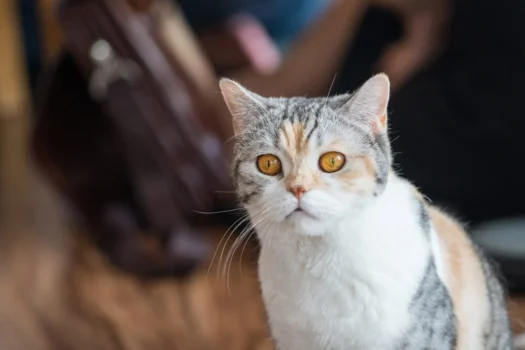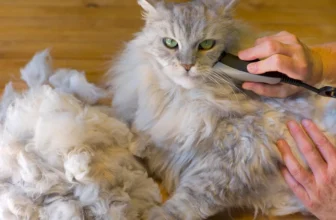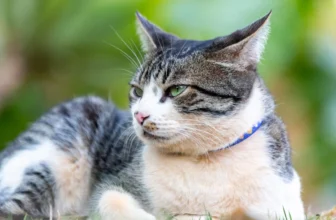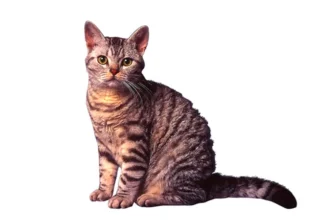It’s easy to overlook your American Wirehair’s oral health, but maintaining proper dental hygiene is crucial for their overall well-being. Neglecting their dental care can lead to painful and costly health problems. As a responsible pet owner, it’s important to educate yourself on common oral health issues, their signs, and how to prevent them. In this article, we’ll explore the topic of “Spotting Oral Health Problems in Your American Wirehair” and offer practical steps you can take to ensure their teeth and gums stay healthy and strong. Let’s dive in!
Common Oral Health Problems in American Wirehairs
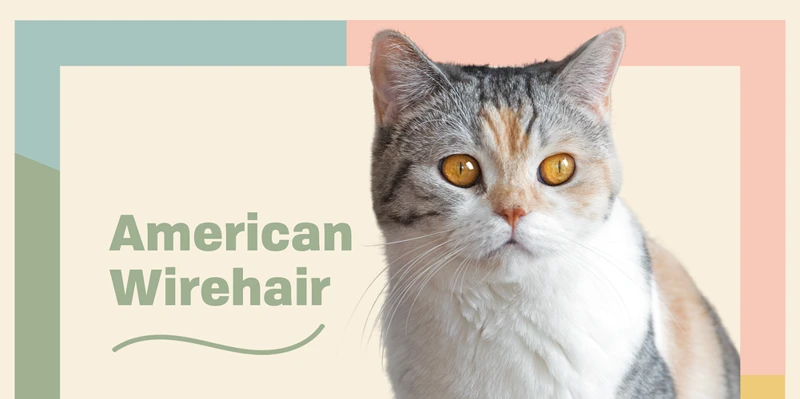
Maintaining your American Wirehair’s good health is crucial in ensuring a happy and fulfilling life. Unfortunately, oral health issues can easily arise in pets, causing discomfort, and even pain. It’s essential for pet owners to be aware of the common oral health problems their American Wirehairs may face. By understanding these issues, pet owners can promptly recognize them and seek professional help. In this section, we will discuss the most frequent oral health problems in American Wirehairs, their causes, and how to prevent them. By taking care of your American Wirehair’s teeth and gums, you can help your furry friend live a happy, healthy, and pain-free life. You can learn the correct teeth brushing routine and frequency in our American Wirehair Teeth Brushing Guide.
Gingivitis
Periodontal disease is a common oral health issue for American Wirehairs, and it often begins with gingivitis. Gingivitis is a mild form of periodontal disease that affects the gums surrounding the teeth. It occurs when there is a buildup of plaque and bacteria on the teeth that cause the gums to become inflamed and swollen. Without proper treatment, gingivitis can lead to more severe periodontal disease and tooth loss.
Some of the common causes of gingivitis include poor dental hygiene, a diet high in sugar and carbohydrates, and certain medications that can cause dry mouth. It’s essential to be able to recognize the signs of gingivitis early on so that you can take the necessary steps to prevent it from progressing.
Signs of gingivitis in your American Wirehair may include:
| Signs of Gingivitis | Description |
| Red, swollen, and sensitive gums | One of the most common signs of gingivitis is red, swollen, and sensitive gums. You may notice that your cat’s gums appear more red than usual and are swollen to the point where they bleed when touched. |
| Bad breath | If you notice that your American Wirehair has bad breath, it could be a sign of gingivitis. Bad breath is caused by the buildup of bacteria in the mouth, which can be a result of poor dental hygiene or periodontal disease.(source) |
| Difficulty eating | Your American Wirehair may have difficulty eating if they are experiencing pain or discomfort in their mouth due to gingivitis. They may avoid eating or seem to be in pain when eating hard food. |
| Bleeding gums | Bleeding gums is another common sign of gingivitis. If you notice blood on your cat’s toys or on their chew bones, it could be a sign that they have gingivitis. |
If you suspect that your American Wirehair has gingivitis, it’s important to take them to the vet for a check-up. The vet may recommend a professional teeth cleaning or provide guidance on how to properly brush your cat’s teeth at home. Regular dental check-ups and a proper diet can also help prevent gingivitis from developing in the first place.(source)
Periodontitis
Periodontitis is a severe form of gum disease that affects the tissues surrounding the teeth, including the gums, periodontal ligaments, and alveolar bone. When left untreated, periodontitis can ultimately lead to tooth loss. American Wirehairs are susceptible to this oral health problem, so it’s essential to be aware of the signs and how to prevent it from progressing.
Periodontitis occurs when the inflammation caused by gingivitis spreads below the gum line, allowing harmful bacteria to grow in the spaces between the gums and teeth. These bacteria can cause infections, which lead to bone degradation and tooth loss.
The signs of periodontitis include:
| Bad breath | Bleeding gums | Receding gums |
| Painful chewing | Loose teeth | Sensitive teeth |
If you notice any of these symptoms in your American Wirehair, it’s time to schedule a visit to the vet. Your vet can examine your cat’s teeth and gums to determine the severity of the periodontitis. They may also recommend a professional teeth cleaning to remove plaque and tartar buildup that can contribute to periodontal disease.
Preventing periodontitis in American Wirehairs is key to maintaining their oral health. Daily brushing and regularly scheduled dental check-ups are necessary to avoid periodontitis. Use cat-specific toothbrushes and paste, or alternative products that can make brushing easier. Chew toys and bones also help to reduce the plaque and tartar buildup that contribute to the development of periodontitis.
Following these preventative measures can help your American Wirehair maintain healthy teeth and gums and prevent oral health problems such as periodontitis. Be vigilant and watch out for any of the signs mentioned above. Regular visits to the vet, brushing their teeth regularly, and providing them with chew toys, bones, and healthy diets are crucial parts of keeping their teeth and gums healthy throughout their lives.
For more information on brushing frequency, read our article on American Wirehair Teeth Brushing Frequency, and for the best toothbrush and toothpaste options for American Wirehairs, click on Best Toothbrush & Toothpaste for Wirehair.
Tooth Resorption
Tooth resorption is another common oral health problem in American Wirehairs. It is a process where the internal structures of a tooth break down and are replaced by hard tissue. This condition can cause extreme discomfort and pain for affected cats.
One of the major causes of tooth resorption is genetics. Unfortunately, there is no way to prevent this from happening if it is caused by genetics. However, other causes of tooth resorption can be prevented.
Some common symptoms of tooth resorption include:
- Difficulty eating
- Excessive drooling
- Bleeding from the mouth
- Sensitivity to touch around the mouth
If tooth resorption is suspected, a dental check-up with a veterinarian is necessary. They will be able to diagnose the issue and determine a course of treatment, which may include extractions of affected teeth.
It is essential to maintain good oral hygiene for your American Wirehair to prevent tooth resorption. Regular brushing with a cat-specific toothbrush and toothpaste can help remove plaque and prevent the development of cavities and gum disease. Providing your cat with chew toys and bones can help keep their teeth strong.
In order to keep your American Wirehair’s teeth healthy, it is recommended to schedule a professional dental cleaning with your veterinarian every six to twelve months. This will ensure that any dental issues are caught early on and treated before they become more serious.
Consider using an alternative toothbrush such as a silicone finger brush for gentle teeth cleaning (read more about alt-brushes for American Wirehair teeth here). Together with regular professional teeth cleaning (read more about professional teeth cleaning for American Wirehairs here), you will be able to prevent tooth resorption and maintain your American Wirehair’s oral health.
Signs of Oral Health Problems in American Wirehairs
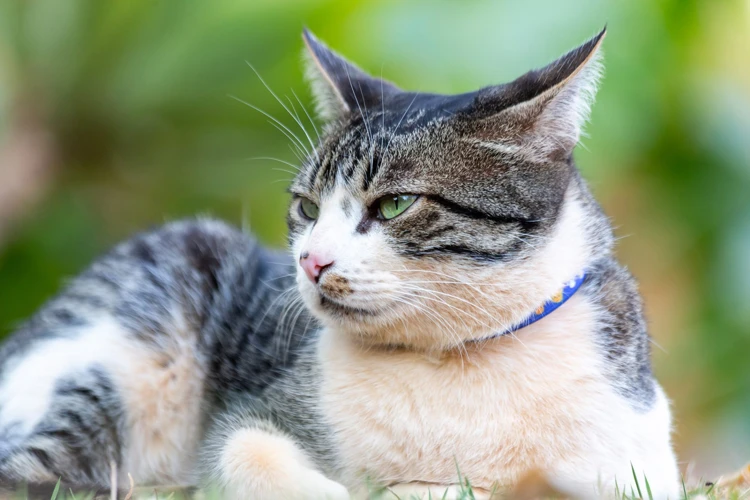
As a pet owner, it’s crucial to pay attention to your American Wirehair’s oral health. Since cats can’t communicate their discomforts easily, it’s important to recognize the signs of oral health problems early on. Neglecting oral hygiene not only leads to bad breath but can also pose a serious risk to your cat’s overall health. In this section, we’ll discuss the various indicators of oral health problems in American Wirehairs that you should be aware of.
Bad Breath
One of the most common signs of oral health problems in American Wirehairs is bad breath, medically known as halitosis. If your furry friend has noticeably bad breath, it could be a sign of various oral health issues such as the buildup of plaque and tartar, gum disease, infections, or even kidney problems. To help prevent and identify these issues, keep an eye out for the following signs:
- Offensive odor: If your American Wirehair has bad breath that smells unusually strong, fishy, metallic, or even sweet, it could be an indicator of different oral health issues at hand.
- Tongue discoloration: The tongue may have an abnormal color or a white coating that is not a result of the food your cat has eaten.
- Dry mouth: Cats need to produce enough saliva to lubricate their mouth, balance PH, and break down particles left behind after eating. A reduced amount of saliva can cause bad breath.
- Behavioral changes: Cats with bad breath can experience pain when eating or drinking, which can lead to avoid these activities, lose weight, or even become more aggressive.
If you notice any strange odor coming from your American Wirehair’s mouth or any of the above signs present, it is essential to take them to a veterinarian as soon as possible. With regular checkups, early detection, and treatment of any underlying health issues can prevent them from getting worse.
Swollen Gums
Swollen gums can be a sign of gum disease, which should be taken seriously. American Wirehairs are not immune to this issue and can suffer from swollen gums just like any other cat breed. Swollen gums can be caused by bacteria that have built up in the mouth and a lack of proper dental hygiene. Additionally, certain medications, allergies, and other health issues may also contribute to swollen gums.
One of the ways to spot swollen gums is through visual inspection. Regularly looking inside your cat’s mouth can help you identify any inflammation or redness in the gums. Another way to identify swollen gums in your American Wirehair is by paying attention to their behavior during mealtime. If your cat is reluctant to eat or shows signs of discomfort while eating, it could be a sign of swollen gums.
How to treat swollen gums?
The first step in treating swollen gums is to take your cat to the veterinarian for a check-up. Your vet will be able to determine the cause of the swelling and recommend the best course of action. A dental cleaning may be recommended in more severe cases of gum disease. Your vet may also recommend changing your cat’s diet to one that promotes healthier teeth and gums. In some cases, antibiotics may be prescribed.
Prevention tips
Prevention is always better than cure. Here are some tips to help prevent swollen gums in American Wirehairs:
| Daily Brushing | Regular brushing can help prevent the buildup of bacteria that can cause gum disease. Use a cat-specific toothbrush and toothpaste to gently brush your cat’s teeth daily. Start by introducing your cat to the toothbrush and toothpaste gradually, so they can get used to the experience. |
| Regular dental check-ups | Regular dental check-ups and cleanings with your veterinarian can help identify and treat any issues before they become more severe. |
| Proper diet | A healthy diet can also help prevent gum disease in American Wirehairs. Aim to feed your cat high-quality, nutrient-rich food that promotes good oral health. |
| Chew toys and bones | Providing your American Wirehair with chew toys and bones can help to keep their teeth and gums healthy. These toys and bones can help to remove plaque buildup and promote healthy teeth and gums. |
By following these prevention tips, you can help keep your American Wirehair’s teeth and gums healthy, preventing any discomfort or dental issues before they arise.
Bleeding Gums
Bleeding gums in American Wirehairs is a common sign of oral health problems. If you notice that your cat’s gums are bleeding, it’s important to take action to address the issue. Here are some steps you can take:
1. Check for the cause of bleeding: Bleeding gums in American Wirehairs can be caused by a variety of things, including gingivitis, periodontitis, tooth resorption or injury. It’s important to identify the underlying cause of bleeding and address it accordingly.
2. Brush your cat’s teeth: Regular brushing can help prevent bleeding gums by removing plaque and tartar buildup. Use a cat-specific toothbrush and toothpaste to gently brush your cat’s teeth.
3. Feed a balanced diet: A balanced diet including essential nutrients can help maintain your cat’s oral health. Choose wet foods that contain high-quality proteins and avoid sugary treats.
4. Provide chew toys and bones: Chew toys and bones can help maintain oral health by removing plaque and tartar buildup, as well as giving your cat something to chew on.
5. Schedule regular dental checkups: Professional cleanings and dental exams are important to ensure your cat’s oral health. Your vet can identify early signs of bleeding gums and provide treatment before damage is severe.
Remember, if you notice bleeding gums in your American Wirehair, it’s important to take action to address the issue. Follow these steps to prevent further damage and maintain your cat’s overall health and happiness.
Excessive Drooling
Excessive drooling is another sign that your American Wirehair may be experiencing oral health problems. While some drooling is normal, excessive drooling can indicate that your cat is experiencing discomfort or pain in their mouth. This can be caused by a variety of oral health problems, including gum disease, tooth decay, or even mouth tumors.
Here are some signs to look out for if you suspect your cat is drooling excessively:
| Signs of Excessive Drooling in American Wirehairs |
|---|
| Wet fur around the mouth and chin |
| A constantly wet or damp spot where your cat has been laying down |
| Difficulty grooming their fur, which may become matted or unkempt |
| Inflammation or redness around the mouth and gums |
| Loss of appetite or difficulty eating |
| Unpleasant breath or odors coming from the mouth |
If you notice these signs, it is important to take your American Wirehair to the vet as soon as possible. The vet will be able to examine your cat’s mouth and determine the underlying cause of their excessive drooling. From there, they can recommend an appropriate course of treatment, which may include medication, dental care, or even surgery.
To prevent oral health problems that can lead to excessive drooling, it is important to practice good dental hygiene for your cat. This includes daily brushing, providing chew toys and bones, and feeding your cat a healthy diet. By taking these steps, you can help keep your American Wirehair smiling and comfortable for years to come.
Difficulty Eating
Difficulty eating is a common sign of oral health problems in American Wirehairs. It can be caused by several issues, including loose or missing teeth, gum inflammation, or even mouth tumors. If you notice your cat having difficulty eating, it’s crucial to take action immediately.
Here are some signs that your cat may be having difficulty eating:
| Signs of Difficulty Eating |
|---|
| The cat avoids food or chews on only one side of the mouth |
| The cat takes longer to eat or leaves food in the bowl |
| The cat drools excessively while eating |
| The cat makes noises while chewing or swallowing |
If you notice any of these signs, take your cat to the veterinarian immediately. The veterinarian will examine your cat’s mouth and teeth to identify the cause of the difficulty eating. They may take X-rays to get a more comprehensive view of your cat’s oral health.
If your cat has loose or missing teeth, the veterinarian may recommend a dental extraction. They may also prescribe medication for gum inflammation or an infection. Additionally, the veterinarian may suggest a special diet that is easier for your cat to eat.
Difficulty eating is a sign of oral health problems in American Wirehairs that should never be ignored. By keeping an eye out for the signs mentioned above and taking immediate action, you can help ensure your cat’s oral health and overall wellbeing.
Preventing Oral Health Problems in American Wirehairs
Ensuring good oral health in American Wirehairs is key to maintaining their overall health and happiness. While oral health problems can be common in cats, there are things you can do as an owner to prevent them from occurring. By taking specific measures, you can minimize the risk of your American Wirehair suffering from oral health problems. In this section, we will discuss several preventative methods and how you can implement them into your cat’s daily routine.
Daily Brushing
One of the most effective ways to prevent oral health problems in American Wirehairs is by implementing a daily brushing routine. Brushing your cat’s teeth may seem like a daunting task, but it is important for maintaining their oral hygiene. Here are some tips on how to make daily brushing a part of your cat’s routine:
- Use a cat-specific toothbrush: Using a toothbrush designed for cats can make the process much easier. These toothbrushes are smaller and have softer bristles, making them more comfortable for your pet.
- Choose the right toothpaste: It is important to use toothpaste that is specifically formulated for cats. These pastes are safe for your pet to swallow and come in flavors that cats enjoy, such as chicken or fish.
- Start slowly: If your cat is not used to having their teeth brushed, start slowly. Gently rub their gums and teeth with your finger to get them used to the sensation.
- Be patient: Brushing your cat’s teeth may take time and patience. Try to make it a positive experience by praising your cat and giving them treats afterward.
- Brush daily: The key to maintaining good oral health in your American Wirehair is consistency. It is recommended to brush your cat’s teeth at least once a day.
Daily brushing can help to remove plaque and prevent the build-up of tartar, which can lead to more serious dental issues down the line. By incorporating this simple activity into your cat’s routine, you can help to ensure that their teeth and gums stay healthy for years to come.
Regular Dental Check-Ups
Regular dental check-ups are essential for ensuring your American Wirehair’s oral health. Just like humans, cats require regular dental check-ups to keep their teeth and gums in good condition. During a dental check-up, a veterinarian will examine your cat’s mouth and teeth for any signs of dental issues such as gingivitis, periodontitis, or tooth resorption.
Why are regular dental check-ups important?
Regular dental check-ups can help catch oral health problems early, before they become more serious and more expensive to treat. Additionally, during a dental check-up, a veterinarian may also perform a dental cleaning to remove any buildup of tartar or plaque on your cat’s teeth. This can help prevent future dental issues from developing and can also help keep your cat’s breath fresh.
How often should you take your American Wirehair for a dental check-up?
The frequency of dental check-ups will depend on your cat’s individual needs as well as their age and overall health. However, as a general rule of thumb, cats should have a dental check-up at least once per year. If your American Wirehair has a history of dental problems or is older in age, it may be recommended to schedule dental check-ups more frequently, such as every six months.
What happens during a dental check-up?
During a dental check-up, a veterinarian will examine your American Wirehair’s teeth and gums for any signs of dental issues. They may look for things such as redness or swelling around the gums, loose or broken teeth, or any signs of abnormal growth. If any issues are spotted, the veterinarian may recommend further procedures such as dental X-rays or extractions.
How to prepare your American Wirehair for a dental check-up?
Before taking your cat for a dental check-up, it’s important to prepare them for the visit. Make sure your cat is comfortable with being handled and examined, particularly around their mouth. Additionally, try to refrain from giving your cat food or water for a few hours before the appointment, as this can make it easier for the veterinarian to examine their mouth.
Regular dental check-ups are an important aspect of your American Wirehair’s overall health and well-being. By scheduling regular check-ups, you can help prevent future dental issues and catch any problems early, ensuring that your precious pet stays healthy and happy for years to come.
Proper Diet
A proper diet is essential for the overall health of your American Wirehair, including their oral health. Providing them with a balanced and nutritious diet can help prevent many oral health issues. Here are some tips to ensure that your cat’s diet is helping to maintain their oral health:
- Incorporate wet food into their diet: Feeding your American Wirehair wet food in addition to their dry food can help keep their mouth moisturized. Dry food can often get stuck in their teeth and cause plaque buildup. Adding wet food to their diet can also help clean their teeth naturally as they chew their food.
- Limit treats: While treats can be a great way to reward your cat, it’s important to limit their consumption. Many treats are high in sugar and can contribute to tooth decay.
- Provide crunchy food: Providing your cat with food that has a crunchy texture can help keep their teeth clean. The act of crunching down on their food can act as a natural toothbrush, scraping away any buildup on their teeth.
- Avoid feeding human food: Many human foods can be harmful to cats and may contribute to oral health problems. Avoid feeding your American Wirehair table scraps and stick to a high-quality cat food.
By incorporating these tips into your American Wirehair’s diet, you can help prevent oral health problems and keep their overall health in check. Remember to always consult with your vet about your cat’s diet and to ensure they are getting all the necessary nutrients for a healthy life.
Chew Toys and Bones
Providing your American Wirehair cat with the appropriate chew toys and bones is an essential part of maintaining good oral health. These toys and bones can help to reduce the build-up of plaque and tartar on their teeth, keeping their mouths healthy and fresh.
When choosing chew toys and bones for your cat, it’s crucial to consider a few factors, such as their size, shape, and texture. You want to select toys that are appropriate for their size, meaning that they’re neither too small nor too large. If they’re too small, there’s a risk that your cat may swallow them whole, leading to choking or other issues. If they’re too large, your cat may struggle to hold them in their mouth, resulting in frustration and lack of interest.
Table:
| Toy/Bone | Advantages | Disadvantages |
|---|---|---|
| Rawhide chews | – Helps remove plaque and tartar – Can keep your cat distracted – Can help satisfy their urge to chew |
– Can be difficult for some cats to digest – Some rawhide chews may contain harmful chemicals or preservatives |
| Rubber toys | – Can help massage gums and clean teeth – Durable and long-lasting – Some come with treats or flavors that cats enjoy |
– Some cats may lose interest after a short time – Can be too hard or tough for some cats |
| Dental chews/treats | – Designed specifically for dental health – Can help clean teeth and freshen breath – Many varieties and flavors to choose from |
– Can be high in calories – Some may contain ingredients that could be harmful or allergenic to some cats |
The texture of the toy or bone is also critical. You want to choose ones that are slightly abrasive, which can help to scrape away plaque and tartar from your cat’s teeth. Some good options include rawhide chews, rubber toys, and dental chews/treats.
Remember that no toy or bone can replace regular brushing and dental check-ups. However, providing your American Wirehair cat with the appropriate chew toys and bones can help to supplement their oral health routine, keeping their mouth healthy and fresh.
Conclusion
In conclusion, proper oral hygiene for American Wirehairs is crucial for their overall health and well-being. Gingivitis, periodontitis, and tooth resorption are common oral health problems that can have serious consequences if left untreated. It’s important to be aware of the signs of these issues, such as bad breath, swollen and bleeding gums, excessive drooling, and difficulty eating.
Fortunately, there are several steps that pet owners can take to prevent these problems from arising in the first place. Daily brushing, regular dental check-ups, a proper diet, and providing chew toys and bones can all contribute to maintaining good oral hygiene.
Remember, prevention is key when it comes to your pet’s oral health. Don’t wait until you notice a problem – start incorporating these preventative measures into your daily routine as soon as possible. By doing so, you can help ensure that your American Wirehair stays healthy and happy for years to come.
Frequently Asked Questions
Can American Wirehairs develop oral health problems?
Yes, American Wirehairs are susceptible to various oral health problems.
What are the common oral health problems in American Wirehairs?
The common oral health problems in American Wirehairs include gingivitis, periodontitis and tooth resorption.
What are the signs of oral health problems in American Wirehairs?
The signs of oral health problems in American Wirehairs include bad breath, swollen or bleeding gums, excessive drooling, and difficulty eating.
Can brushing prevent oral health problems in American Wirehairs?
Brushing your American Wirehair’s teeth daily can significantly lower the risk of oral health problems.
What kind of diet is best for my American Wirehair’s oral health?
A diet that includes high-quality kibble or wet food that is formulated for dental health can help prevent oral health problems in American Wirehairs.
How often should I take my American Wirehair for a dental check-up?
Your American Wirehair should have annual dental check-ups. If they have existing oral health problems, they may need more frequent visits.
Can chew toys and bones help prevent oral health problems?
Yes, giving your American Wirehair chew toys and bones to chew on can help clean their teeth and prevent oral health problems.
Can oral health problems in American Wirehairs lead to other health complications?
Yes, untreated oral health problems in American Wirehairs can lead to other health complications such as kidney disease, heart disease, and even cancer.
Are American Wirehairs more prone to oral health problems than other cat breeds?
No, American Wirehairs are not more prone to developing oral health problems than other cat breeds, but they are susceptible to similar oral health problems.
What should I do if I notice signs of oral health problems in my American Wirehair?
If you notice signs of oral health problems in your American Wirehair, you should take them to the veterinarian for an evaluation and treatment.

